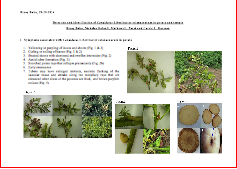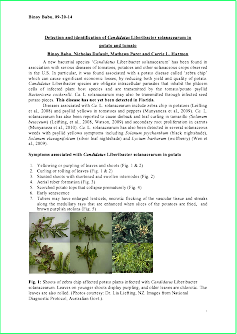Survey for Candidatus Liberibacter solanacearum causing Zebra chip disease of potato and Psyllid Yellows in tomato and other solanaceous crops: Issued September 20th, 2014
This pathogen is not detected in Florida Yet!.
A new bacterial species ‘Candidatus Liberibacter solanacearum’ has been found in association with serious diseases of tomatoes, potatoes and other solanaceous crops livepage.apple.comin the U.S. In particular, it was found associated with a potato disease called ‘zebra chip’ which can cause significant economic losses, by reducing both yield and quality of potato. Candidatus Liberibacter species are obligate intracellular parasites that inhabit the phloem cells of infected plant host species and are transmitted by the tomato/potato psyllid Bactericera cockerelli. Ca. L. solanacearum may also be transmitted through infected seed potato pieces.
This is an IFAS pest monitor for extension agents in Florida and is issued by Carrie Harmon, Nick Dufault, Mathews Paret and Binoy Babu, University of Florida. Click on the picture to the top left to take a quick look at symptoms on potato and tomato. Click the picture to the bottom left to see additional details.

2025
NFREC and the Department of Plant Pathology

